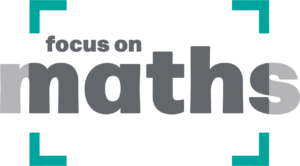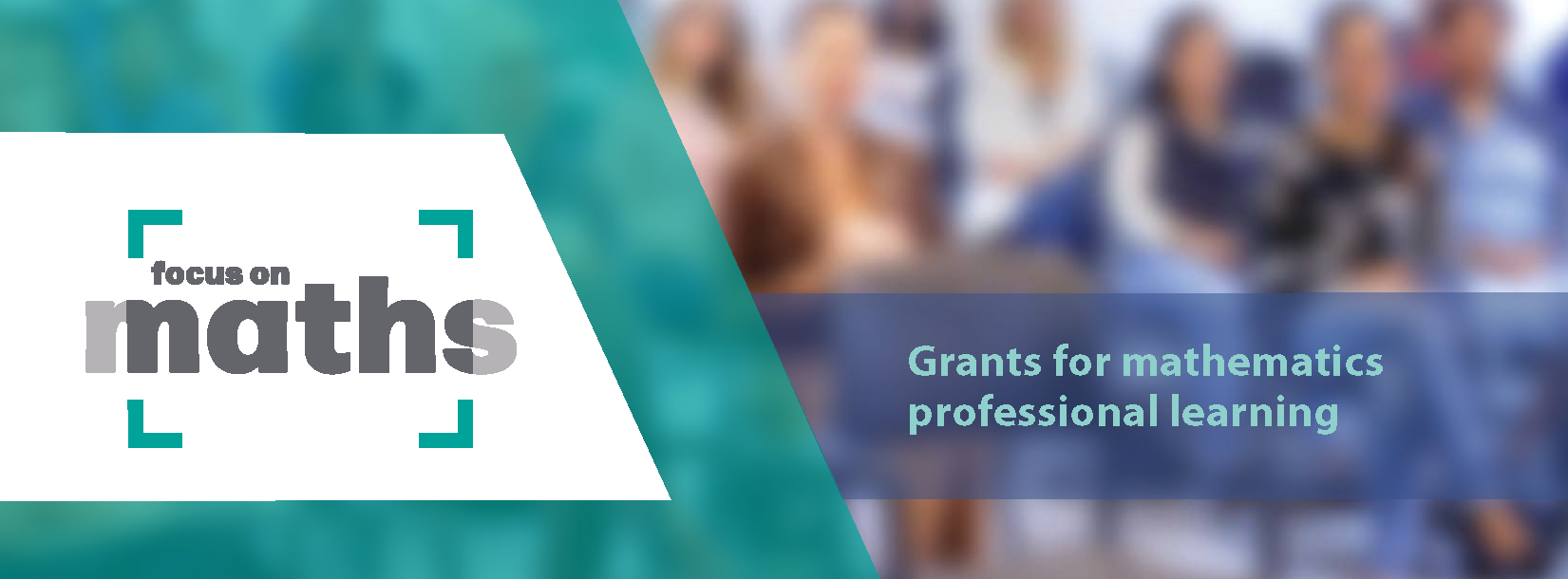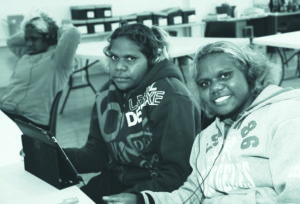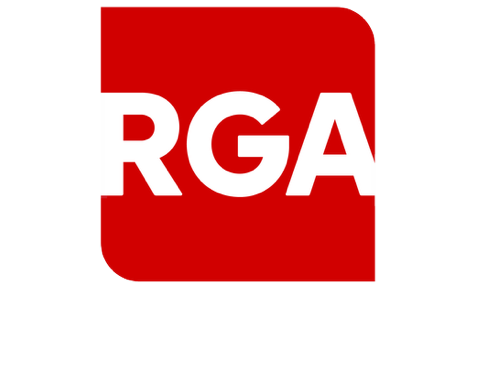
A professional learning initiative from AAMT

Focus on Maths
Focus on Maths is an AAMT initiative that aims to help build equity of access to maths education and improve the maths skills of students across a range of schools in Australia, by building capacity in maths teaching.
Focus on Maths recognises the enduring research base which shows that teacher efficacy is one of the biggest school-based drivers of student achievement. Supporting the development of good maths teachers in local communities is one of the best ways to improve maths achievement in schools across Australia.
The Focus on Maths program achieves this by funding local initiatives such as professional learning in maths education for teachers working with students in the F—12 years.
- Provides funding for the Focus on Maths program
- Develops teacher’s mathematical content and pedagogical knowledge
- Targeted towards disadvantaged schools
- Tailored to locally identified professional learning needs
- Incorporates grants ranging from $2 000 to $30 000
Eligibility guidelines
Eligible schools include:
- Primary, secondary and combined schools
- Single schools or clusters of local / similar schools
- Schools located in all Australian states and territories
The program targets Australian students who face the greatest barriers in accessing quality education and resources and grant recipients are selected via a competitive process. This process evaluates applications based on their demonstrated commitment to maths teaching and the potential impact of their proposed grant-funded activity on the most educationally disadvantaged groups of students. Preference is given to schools and teachers in the following categories:
- Schools serving students from low socioeconomic backgrounds, determined by the school’s ICSEA* score—must be below 1000
- Schools in rural/remote Australia
- Schools with significant numbers of Aboriginal and Torres Strait Islander students
- Out of field (secondary) teachers
- Teachers who lack confidence in mathematics teaching
(* School ICSEA scores can be found on the My School website at https://www.myschool.edu.au/)
Application guidelines
Once you have determined that your school meets the eligibility criteria, you need to identify a clear project that aims to develop teachers’ mathematical content and pedagogical knowledge. Some tips when preparing your application:
- Identify a clear focus on one pressing issue facing your school and one (or at most two) professional development initiatives to address this
- Focus your funding request on professional development activities, rather than on purchasing resources
- Identify cost-effective ways to cascade the learning to other staff
- Apply for a grant that is proportionate to the size of your school / cluster – note that most of the grants we issue are under $10 000
- Consider the sustainability of your project and how benefits can be realised in the medium to long term
- Review the sample applications below.
Sample applications
We have prepared some sample applications to illustrate the type of information we might expect to see in some typical applications. As all initiatives are uniquely tailored to each local school these are just examples for illustrative purposes.
- Sample 1: Secondary government school in a major city targeting engagement and numeracy skills. View
- Sample 2: Small regional government primary school with inexperienced staff targeting multiplicative thinking. View
- Sample 3: Cluster of Catholic primary/secondary schools serving Aboriginal and Torres Strait Islander communities wanting to build cultural connections in their mathematics teaching and learning. View
If you have any queries or need support in relation to your application, please email us
How can Focus on Maths funding be used?
Professional learning needs are self-identified by the school during the application process, as we believe that local teachers and school leaders are the best people to determine the specific challenges and hence professional learning requirements relating to their local setting.
AAMT works with successful applicants to develop and implement solutions that are tailored to their context, are sustainable and have significant potential to positively impact and improve student maths learning and achievement. This may include identifying suitable conferences or other professional learning activities or connecting schools with appropriate specialists to provide bespoke professional learning, for example.
Professional learning is at the heart of the Focus on Maths program, but other resources and activities can be incorporated into an individual project as part of an integrated maths improvement plan.
Grants can vary between a minimum grant of $2 000 up to a more wide reaching grant of $30 000 and projects may be completed within a term or may take place over an extended period of up to a year.
To ensure the effectiveness of the program there are some reporting requirements attached to all grants, but these are designed to be as streamlined as possible to minimise the demands placed on grant recipients and to ensure that they can focus on what they do best—teaching their students.
Apply for a Focus on Maths grant
Our current funding round has been fully allocated and we are not accepting new applications at this time.
We are actively seeking additional funding partners to support future rounds.
To be notified when applications reopen, please complete the Expression of Interest form below.
How does my school apply for a Focus on Maths funding?
All applications should be submitted via our online portal.
The application form is in two parts:
- Section 1 collects essential data such as contact details and demographic information about your school, including the type of school, location and ICSEA score. Much of this information needs to be sourced from ACARA’s myschool website.
- Section 2 asks you to describe your proposed initiative in more detail, outlining why you are applying for Focus on Maths funding, how you will use the funding if your application is successful and what outcomes you expect to see from your project.
You can begin your application and return to it later by re-clicking on the application link from the same device. Your application will only be considered for funding once all questions have been completed and you have typed in your name in the final question (Question 19).
How to complete the application form— Section 1
How to complete the application form— Section 2
What happens after I apply?
Immediately on submission, you will receive a message on screen thanking you for your application.
We review submissions in rounds based on fixed closing dates. All submissions received in a round are considered, evaluated and compared based on the overall program goals, in a three-stage process incorporating both AAMT staff and an external independent specialist.
We will be in touch within 4-6 weeks of the date that the application round closes to advise you of the outcome of your application. Possible outcomes include:
- Approval (immediate progress): If your application is approved for immediate progress, we will begin work with you as soon as is practical to develop a Maths Improvement Plan, detailing the specific initiative(s) that will be implemented in your school(s).
- Approval (deferred): This outcome is similar to above, but reflects the fact that we are only able to manage and implement a limited number of projects at one time. We will agree on an implementation timeline for your project, which typically will incorporate a delay in the start date of between one and two school terms.
- Declined (encouraged to re-apply): This outcome would typically result if your school meets the criteria for a Focus on Maths grant, but our selection committee found that your proposal in its current form, did not. This might be because the proposal did not include enough detail of the issues faced or of the proposed intervention. This response might also be given if the cost effectiveness, sustainability or impact of the proposed project needs further consideration. Specific feedback will be provided to support you in deciding whether and how to re-submit your proposal.
- Declined: This outcome indicates that your school or the proposed initiative do not align with the goals of the Focus on Maths program. This outcome may also result if the Focus on Maths program receives a very significant volume of applications, far in excess of the available funds.
What happens after my project is approved?
Once your project is approved we will work with you to develop your Maths Improvement Plan. This outlines in more detail your proposed maths intervention and includes the:
- project overview: taken from the initial application
- project rationale/goals: the primary and secondary impacts you hope to see on both teachers and students, identification of any teaching areas, pedagogies or specific skills you wish to focus on developing or students you wish to target, culminating in a project goal statement
- project solution: full details of the identified intervention eg professional learning provider, course content, delivery methods and timeline and resource requirements, including a confirmed budget
- participants: a list of all participants in the intervention/professional learning
- impact assessment: an outline of how the achievement of the project goals will be assessed, through surveys and interviews (with staff only, no data is collected from students) and including consideration of the sustainability and continuation of the initiative post-funding.
Once the Maths Improvement Plan is agreed by all parties, funding and implementation can begin.
Further details
Focus on Maths is a program run by AAMT that aims to improve mathematics education in disadvantaged schools.
Disadvantaged schools are those with an ICSEA value of below 1000 (ICSEA is Index of Community Socio-Educational Advantage, an indicator of the socio-educational backgrounds of students). Such schools often lack the resources and expertise to provide the education in mathematics that the students need for their future. Focus on Maths is intended to address these educational needs at the teacher, school or community level.
The program allows schools or individual teachers to apply for grants to improve the teaching and learning of mathematics. The grants should aim to build mathematics teaching and learning capacity in the school by funding professional training for teachers, new resources or similar activities. Grants are awarded on a competitive basis for proposals that have the most impact on mathematics learning outcomes for students.
AAMT is seeking donations from organisations that wish to support maths education in disadvantaged schools. Donations help to maintain a pool of funds from which grants can awarded. There are a number of ways in which donors can contribute:
- A general donation to Focus on Maths. General donations help to maintain funds for the program so that maths education grants can be awarded to schools and teachers where the need and impact is most significant. Donors can be assured of a rigorous award process.
- Donors may wish to specify terms for accessing their funds, for example they may wish to support a particular school, locality or type of program. In this case, only applications that meet the eligibility requirements of the donation will be considered.
- While all contributors to the program will be publicly recognised, donors that provide ongoing support with specific terms may wish to have named grants, scholarships or programs that they are funding, for example Company ABC Professional Development Grant for Indigenous Teachers in South Australia.
- Donors may wish to participate in the selection and award process for grants that they are funding. They may also gain recognition in any award ceremonies, publications or other outcomes arising from the grant.
- AAMT very much welcomes any other suggestions or programs that prospective donors may wish to propose.
- AAMT works in partnership with Schools Plus, a national charity that connects donors with schools in disadvantaged areas to improve student outcomes (schoolsplus.org.au).
- Funds can be contributed either directly to AAMT or via Schools Plus for those organisations that wish to claim tax relief*
*AAMT does not enjoy DGR 1 status. However, Focus on Maths is offered in partnership with Schools Plus, which does have DGR status. Any funds remitted to Schools Plus will be directed to Focus on Maths (with an auspicing fee of 7.5% + GST deducted).
Examples of donations
- A mining company operates in a regional town in Western Australia and wishes to support the local schools. The company recognises the importance of maths education, particularly as it has ongoing demand for technicians, data scientists and engineers all of whom require skills in maths. It donates $30 000 per year to support access to online maths learning resources for the schools and the participation of the maths teachers in a professional learning program.
- A charitable foundation provides $70 000 per year in general donations. Disadvantaged schools and their teachers can access these funds to build capacity in maths teaching and learning. The money is used for initiatives such as on-site professional learning in maths for primary school teachers, teaching relief for a maths specialist to conduct training with teachers in their community and the development of a booklet of lesson plans and pedagogical guidance for teachers.
- A university provides an annual grant to the value of $20 000 to support teachers in remote communities to attend maths teaching conferences and workshops. The participating teachers need to demonstrate the impact of their professional learning on their teaching practices.
- A technology company provides $50 000 to sponsor a project led by schools in a disadvantaged community to create online resources and videos to support maths teaching practices in their local community.
Examples of projects
As every project is unique to a local school or community setting, there’s no such thing as a typical project. However, the examples below illustrate the types of projects that might receive approval and funding.
- Teacher $2 500: An individual newly qualified secondary teacher is posted to a remote school teaching mathematics, but is trained in teaching history. He wants to develop his range of mathematics teaching strategies by attending a mathematics education conference run by his state mathematical association. The funding supports his attendance including conference fees, travel and accommodation. On his return to school he begins implementing some of the ideas he has learned at the conference and shares his learnings with other maths teachers in his local area. In the process, a community of practice is established that continues to support him and his colleagues through the sharing of ideas and practices.
- Teachers $5,500: An individual primary teacher from a regional/low-SES school lacks confidence in her mathematics content and pedagogical knowledge. The Focus on Maths funding allows her to form a mentoring partnership with a highly experienced metropolitan school teacher. She visits her mentor on two occasions, observing classes and discussing teaching practices and the mentor also travels to mentee’s school to provide on site instructional leadership. They stay in touch for several years after the project is completed, regularly corresponding about teaching practices. The teacher gains confidence and enthusiasm for teaching mathematics and ultimately becomes a maths leader within her school, mentoring other teachers.
- School $8 000: A low-SES primary school identifies gaps in their students’ problem solving skills and computational thinking and wants to invest in professional learning to understand the best ways to help students develop these skills. The Focus on Maths program helps them identify a specialist in this area who designs and delivers a professional learning workshop attended by 20 staff members, that incorporates a number of relevant teaching resources and digital tools. The funding allows the school to purchase some class sets of teaching resources and to subscribe to a digital tool. Once a term, the teachers meet to discuss how they are implementing the learning and to share practices that lead to ongoing and sustained improvement in students’ critical and computational thinking skills.
- Cluster $10 000 — $15 000: A high school in a low SES area wants to understand the mathematical backgrounds of their new students and improve the transition from primary to secondary school. A team of teachers from the high school and feeder primary schools is formed who conduct a series of school visits and classroom observations, funded by the Focus on Maths grant. The teachers identify multiplicative thinking as a key area of development and commission an expert educator to design professional learning workshops to help teachers understand how to build this skill in their students, which are attended by primary and secondary teachers together. The primary teachers report confidence and success using the professional learning lessons, whilst over time the secondary teachers report greater skill and confidence in their incoming students. The cluster of schools continue to work together building a community of practice, which eventually incorporates a mathematics peer support program between the schools.
Support maths education in disadvantaged schools
Your donations can provide:
- Professional training for maths teachers
- Books and classroom resources
- Access to digital materials
- Support for leadership in maths and STEM education
- Mentoring, exchange and professional opportunities for maths teachers
- Grants may be made available for communities, schools or projects.
All projects are assessed for their impact on maths education outcomes.
This project is run in partnership with Schools Plus. Donors qualify for tax benefits.







